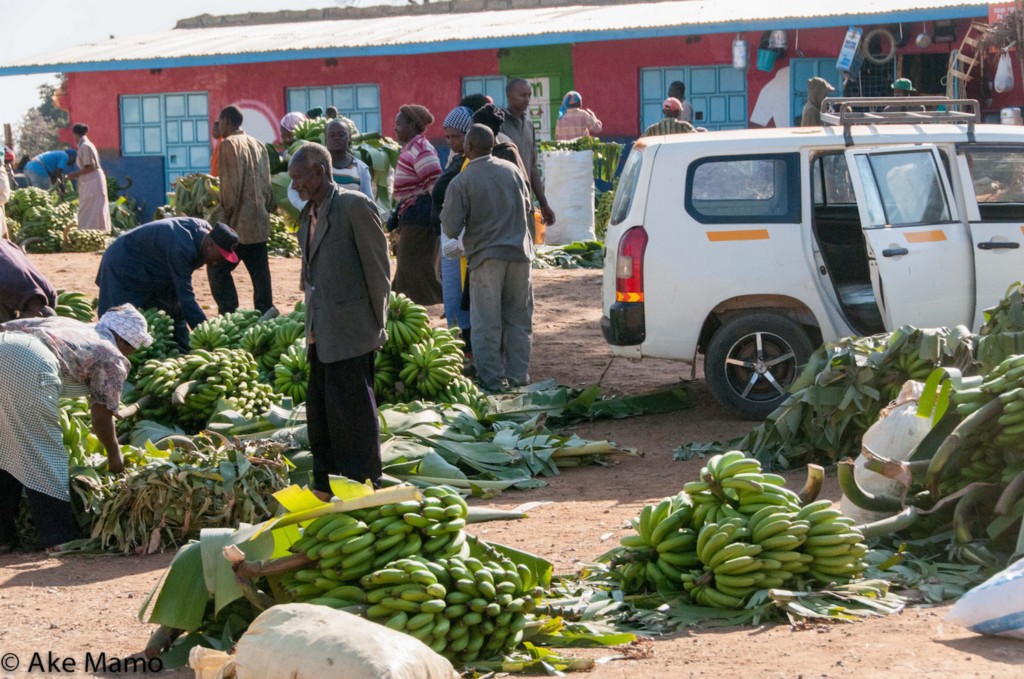Greetings, ImpactAlpha readers!
#Dealflow: Follow the Money
Twiga Foods raises $10.3 million to connect Kenyan farmers and vendors.Twiga, a logistics company and tech platform, has become one of Kenya’s largest distributors of basic food items. The company, launched in 2014, buys produce from Kenyan farmers and delivers it to urban markets and kiosks to improve Nairobi’s informal produce economy, handling more than 4,000 orders a week for bananas alone. Informal vendors account for nearly all sales of produce and other fast-moving consumer goods. “The main reason markets do not work here is because there lacks a proper market infrastructure to support the five million population in Nairobi,” says Twiga’s Grant Brooke. “Produce goes bad and there are massive delays at the markets.” Twiga’s $10.3 million Series A round was led by Dubai-based venture capital firm Wamda Capital, with backing from Omidyar Network, DOB Equity, 1776, Blue Haven Initiative, and others. Twiga also secured a $2 million grant from USAID and mobile operator association GSMA to develop financing, food safety and other services for farmers.
OpenIDEO and GHR Foundation seed fivestartups in “peace, prosperity, and planet” challenge. GHR, a Minneapolis foundation with Catholic roots, developed the BridgeBuilder challenge with OpenIDEO in response to Pope Francis’ call to advance equality and social inclusion through scientific and technological innovation. The five winners, who will split $1 million, include Peace Direct, which is helping ex-combatants in the Democratic Republic of Congo transition to fair-trade gold mining and BioCarbon Engineering, which is restoring Myanmar’s mangroves with tree-planting drones. The other winners were Cameroon-based Local Youth Corner, LIFT Chicago and online Arabic language platform NaTakallam. More than 650 projects were submitted for the challenge. The Pope’s endorsement has spurred a wave of impact investing and social enterprise activity among Catholic organizations.
BlackRock and Lightsource team up to add 1GW of solar generation in the U.K. Solar power represents a growing share of the energy mix in the U.K., a country not known for its sun. The country has about 12-gigawatts of solar capacity that in late May fed a peak 8.7-gigawatts into the national electricity grid, a record high that represented 24% of the total energy mix. BlackRock, the $5.7 trillion asset manager, and Lightsource, a U.K.-based solar power company, plan to develop a £1 billion ($1.3 billion) portfolio of solar projects across the U.K. “We believe this market continues to present attractive opportunities for institutional investors,” says BlackRock’s Rory O’Connor. BlackRock’s and Lightsource’s Kingfisher partnership is looking to develop 1-gigawatt of total capacity, Reuters reports. Kingfisher will incorporate Lightsource’s 156-megawatt solar portfolio and add 50-megawatts in Northern Ireland this year. Solar generation actually outpaced coal power in the U.K.’s electricity grid for six months last year, but government subsidy cuts in 2015 caused the overall renewables sector to contract last year. The government’s Energy and Climate Change Committee announced that the country would likely miss its 2020 target of 15% renewable power generation.
See all of ImpactAlpha’s recent #dealflow.
#Signals: Ahead of the Curve
Build on regional strengths to support local entrepreneurs. Village Capital set out to find what works for local entrepreneurs in a one-year pilot experiment called VilCap Communities. The initiative tested versions of the VilCap model through local accelerators, incubators, seed funds and other entrepreneur-support organizations in more than two dozen communities in and outside the U.S. Programs that focused on regional strengths brought in funding more quickly and attracted higher quality entrepreneurs. Eleven of the 26 local programs were unable to reach their fundraising goals for the programs, reports Village Capital, and none got by without philanthropic funding. “An incubator is a part of the city’s infrastructure, and we’re not in it to make money,” said Antony Seppi of Hamilton Mills in Cincinnati, where the cohort of entrepreneurs focused on water. Entrepreneurs in Portland, Maine, bolstered the city’s ecosystem of health startups, while those in Antigua, Guatemala focused on agriculture. Local ecosystem bonus: Mission Investors Exchange has been digging in on place-based impact investing and is looking for place-based practitioners to participate in a study.
Onward! Please send any news and comments to [email protected].











